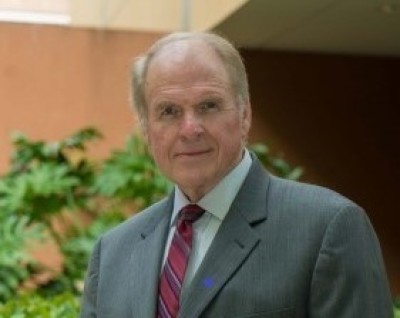Now is not the time to run away

“Only about thirty percent of our people have returned.”
The normally upbeat pastor sagged as he described the before and after impact of COVID-19 shutdowns on his church’s attendance.
He confirmed findings by George Barna. As noted in The Christian Post,Barna reported: “One in three practicing Christians is still and only attending their pre-COVID church.” Some secular observers gloat over statistics indicating that professing Christians have abandoned churches, and even the faith.
There is a sad irony in this phenomenon.
Reading Barna’s reports and those of others brought back to my mind an interview I did more than 50 years ago with one of that era’s most famous authors.
William Bradford Huie had penned The Execution of Private Slovik. It would be hailed as one of the top investigative books of the 1960s, and I talked with Huie about the book and Slovik at Huie’s home in north Alabama.
In 1944, as the Allies’ Normandy invasions advanced against the Nazis, Eddie Slovik became the first American soldier since the War Between the States to be executed for desertion.
Huie sought to understand why this young Detroit native had run away from the battle in France. Huie discovered that Slovik, terrified, had asked his commanding officer to transfer him to the rear of the unit of attack. Slovik’s superior refused, and Slovik told him bluntly that he would run away any way. If caught and sent to the front, “I’ll run away again ...”
And that’s exactly what happened.
The dates of the Slovik tragedy reveal the irony. Slovik’s desertion occurred in the fall of 1944, when Allied armies were headed, with great cost, but much determination, to victory in Europe. Slovik’s execution was on January 31, 1945, five months before “VE (Victory in Europe) Day.
Slovik had made it that close to triumph and the end of the war in Europe.
That brings us to the tragic irony of those who are deserting their faith and churches at this point in history. To understand, we must travel much farther back in time, to ancient Jerusalem.
Jesus of Nazareth, after a night of weeping over the city and its rejection of prophets sent by God and their message, walks toward the Temple compound. Some of His followers join Him, and they head in the direction of the Mount of Olives.
As they pass the imposing Temple structure, someone calls Jesus’ attention to its massive stones. “Do you see all these buildings?” Jesus replies. “I tell you the truth, they will be completely demolished. Not one stone will be left on top of another!” (Matthew 24:2)
Later, up the slope of the Mount, a smaller group of Jesus’ disciples huddle around Him. “Tell us, when will all of this happen? What sign will signal Your return and the end of the world?”
Jesus provides detail: false Christs and false prophets will abound, wars will singe the world, people group will arise against people group, Christ’s followers will increasingly be hated and persecuted, lawlessness in the form of antinomianism—the sheer hatred of law and order—will explode, and apostasy, falling away from doctrinal truth, will increase as many of His followers in that future period lose their passion for Him and His teaching.
But positively, “This gospel of the Kingdom shall be preached to the whole (inhabited) world as a testimony to all the nations (ethnesin, “people groups”), and then the “end” (telos, “purpose”) will come.” (Matthew 24:14)
Therefore, the whole purpose of time and history is the atonement of Jesus Christ for the sins of all humanity, and the announcement of that good news to every people group in the world.
There are many other things that will characterize the end-times, but the proclamation to the whole world is the major marker.
Jesus stresses that the one who “endures (literally, 'keeps standing firm') to the fulfillment of the telos-purpose will be saved” (Matthew 24:13).
So the big question on many minds today is this: Are we in the End Times? And, if so, where are we? How close to the "end” are we?)
Time’s grand fulfillment is the totality of the Christ event: Jesus’ coming into the world to redeem it, His proclamation, His crucifixion and resurrection, His ascension, and the creation and empowerment of His Church to continue His incarnational ministry in the world as His Body.
The events prior to the Christ event were in the age leading to His first coming. Everything after that — including our era — is leading to the Lord’s Second Coming.
A fragment in one of the Apostle Paul’s letters provides a tantalizing clue. He writes Christ’s followers in Corinth to heed well the lessons Moses and the Hebrews learned in the Sinai wilderness. These are written for the people on whom “the culmination of the ages has come” (1 Corinthians 10:6).
If the Corinthian believers 2,000 years ago lived in the “culmination” (or end-goal) of the purpose of time and history, surely we must.
Whatever the case, we live in the period when for the first time ever certain End Times prophecies can be fulfilled — like the collapse of the global economy in one hour (Revelation 18:10-11), and the proclamation, or announcement of the Gospel of the Kingdom to the whole Earth (Matthew 24:14).
Private Slovik deserted when the Allies at last had the upper hand and were moving fast toward victory — which he missed.
With respect to Christ, the moment He was conceived in the womb of Mary, the “beachhead” — the seed — of the Kingdom of Heaven was present in the fallen creation, and the world began moving toward His second coming.
Now is not the time to run away.
Wallace B. Henley’s fifty-year career has spanned newspaper journalism, government in both White House and Congress, the church, and academia. He is author or co-author of more than 20 books. He is a teaching pastor at Grace Church, the Woodlands, Texas.
For media inquiries, contact: [email protected]




























